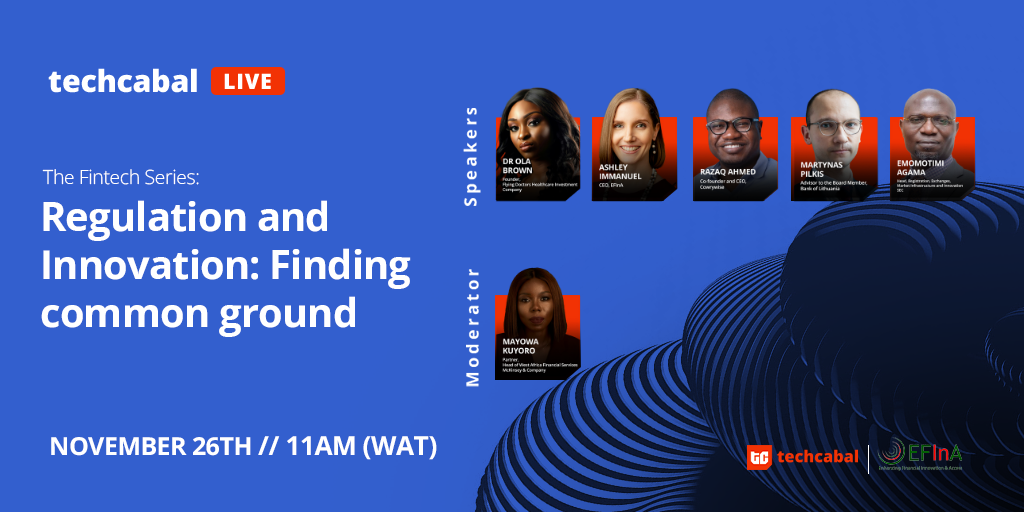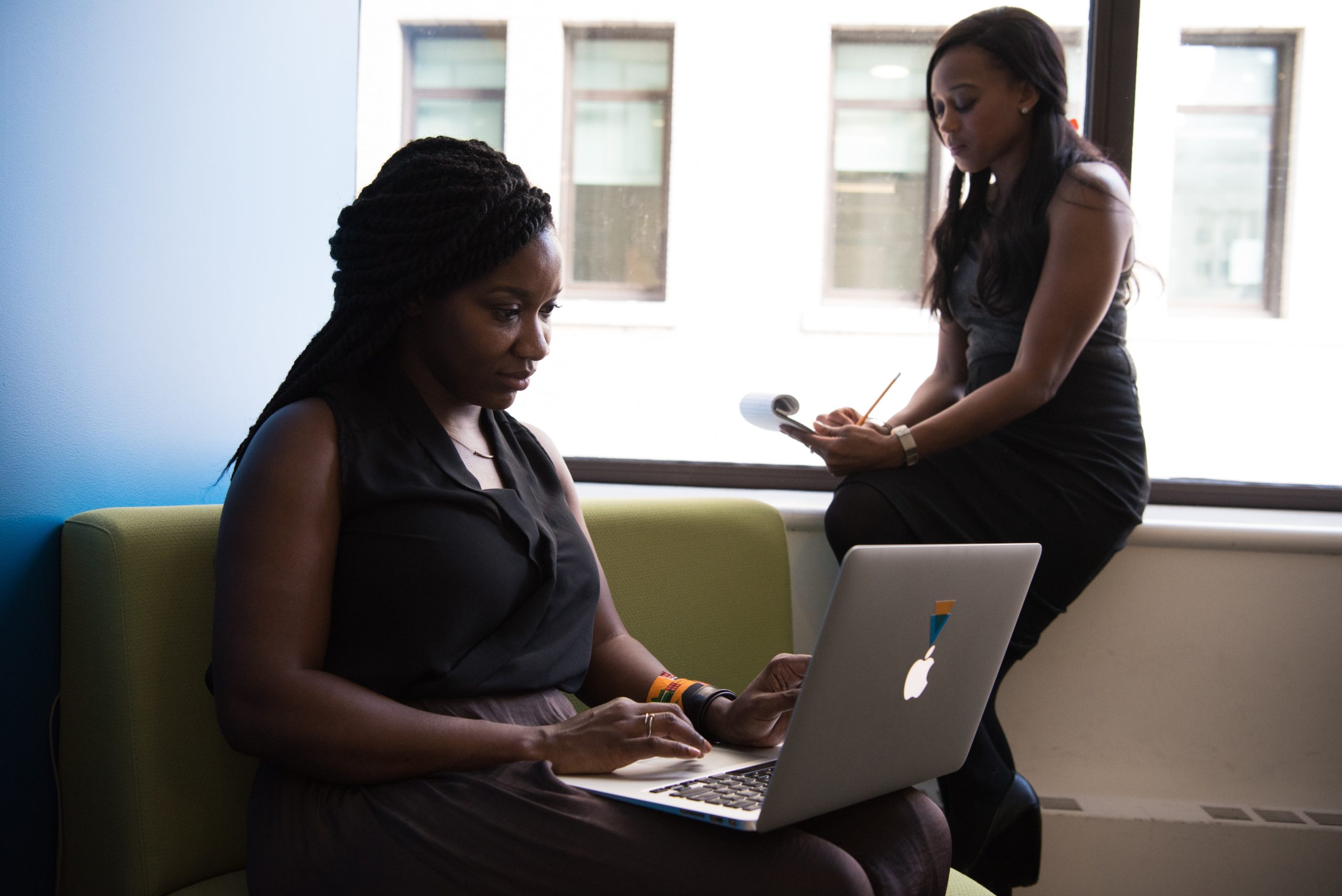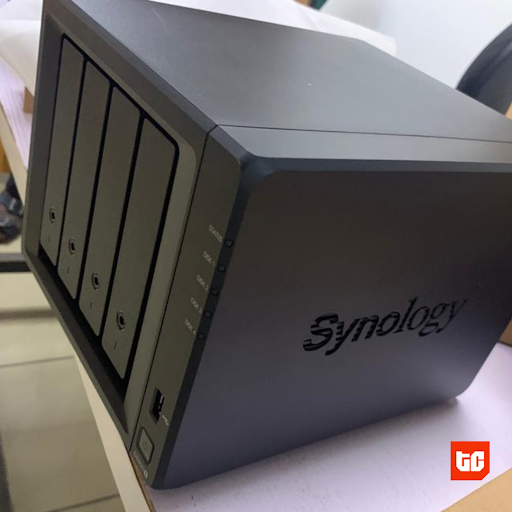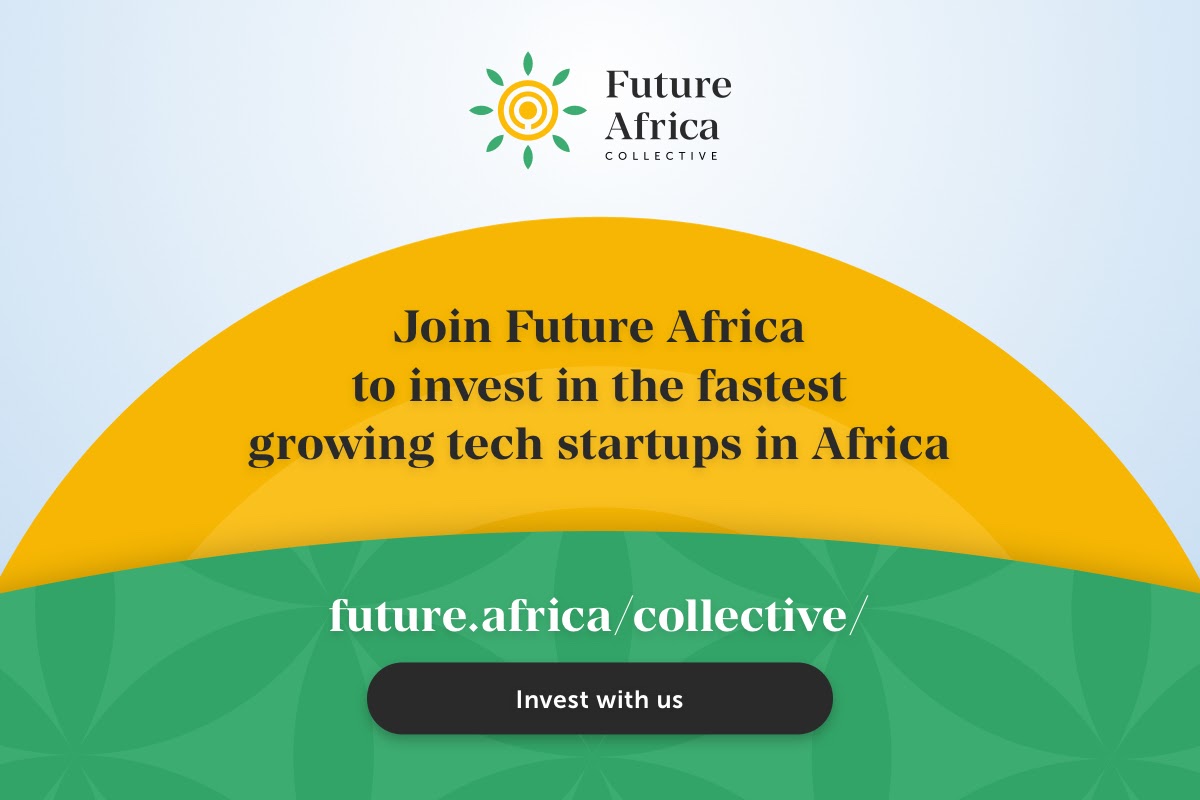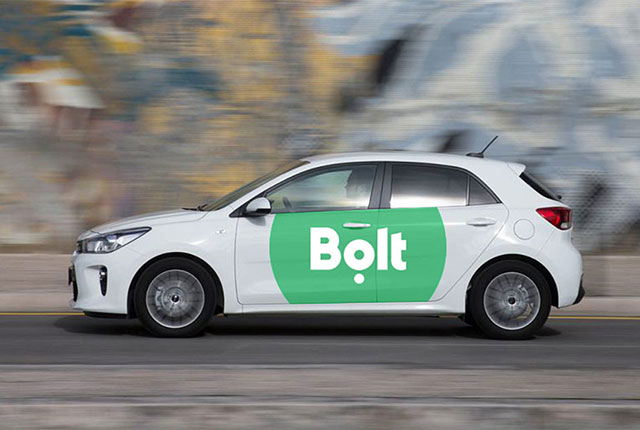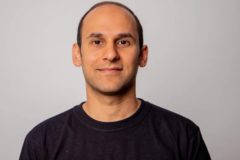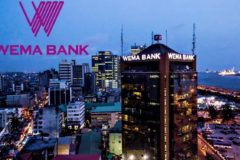
IN PARTNERSHIP WITH

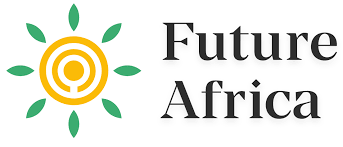

TGIF, ️
TechCabal wants to contribute to your Detty December plans.
You may be expecting gifts from friends and family, but let us give you the greatest gift of all: choice.
What would you like to see on TechCabal? A consumer tech piece on the best affordable tech gifts? A deep dive on the most profitable sectors of 2021? Or a When will my startup become a unicorn quiz?
Whatever your idea is, let us know.

In today’s edition:
- Events: TC Live
- Quick Fire 🔥
- Do African female founders need mentorship?
- A better way to store your files
- TC Insights: Funding Tracker
QUICK FIRE 🔥 WITH ANNA EKELEDO
Anna Ekeledo has spent the last six years as the Executive Director of AfriLabs.
She is the Regional Innovation Lead Africa at the EdTech Hub. She also chairs the Working Party on AfCFTA Negotiations, e-Commerce Forum Africa (EFA), and is a mentor on Google Launchpad Accelerator Africa for Entrepreneurs.
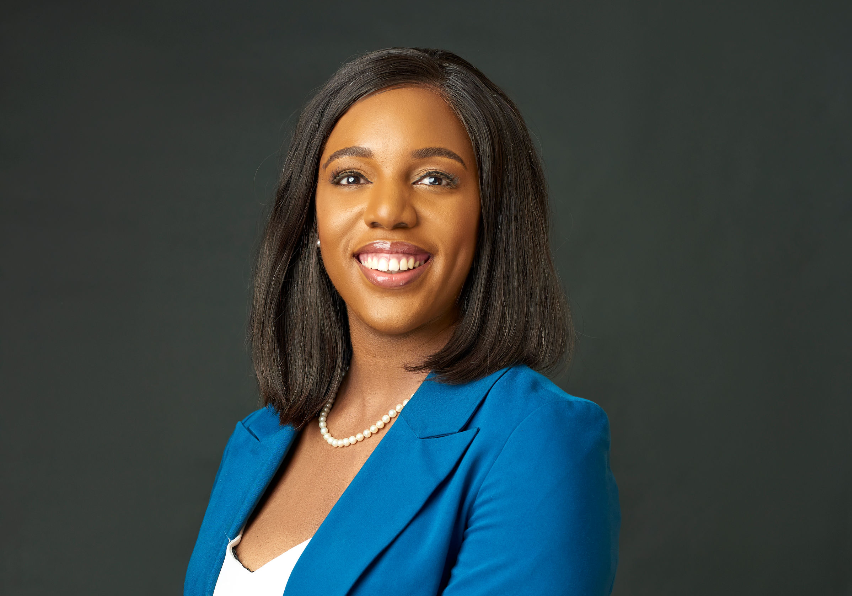
You’ve spent nearly six years as AfriLabs’ ED. How would you sum up your experience there?
A rollercoaster of highs, lows, failures, and immense impact and growth.
What’s your typical workday like?
I wake up at 5 a.m. every day. And then, for an hour, I meditate and do a yoga routine with positive affirmations to start my day. Then I have a cup of coffee while I read up on industry news and any urgent emails I need to attend to. After that, I get ready for work and share duties with my husband in getting my daughter ready for school and dropping her off at school. I am usually at work by 8 a.m. and I get straight to the business of the day, which is usually made up of meetings with partners and various departments within AfriLabs, reviewing and approving documentation, strategy sessions, responding to emails, and the occasional virtual speaking session. Of course, this routine is broken when I travel for speaking engagements or AfriLabs project activities. Most of 2020 and early 2021 involved working from home and we still maintain optional remote working arrangements at AfriLabs, but I prefer to come to the office.
And fun, what does that mean to you?
Watching shows on Netflix, attending book club meetings, and spending time with my husband and daughter.
AfriLabs has experienced sensational growth since its founding 10 years ago. What would you say have been the key factors driving this growth?
I’d say the growth has been driven by three key things. One is community. We’re very strong on community building and are like a family at AfriLabs. Value comes second. We constantly work with and for our hub members and their community members to create and deliver value to them. Lastly, impact. We are impact-driven and focus on not only supporting hubs directly but also on taking a multi-stakeholder approach to building and impacting the African continent through the entrepreneurship and innovation ecosystem.
What advice would you give entrepreneurs looking to build businesses that stimulate growth and development in Africa?
Build solutions, not products.
If there’s something you wish you knew or learned sooner in your career, what is it?
Absolutely! Act fast, fail fast! As cliché as it sounds, I wish I wasn’t so worried about making mistakes earlier in my career and just made decisions and acted faster. I would certainly have had more failures (which are really lessons that add to one’s experiences), but I also would have had more successes as well.
In Ep. 3 of Artwork, learn how to build a passionate community around your content.
👉🏾 Watch now.
This is partner content.
DO AFRICAN FEMALE FOUNDERS NEED MENTORSHIP?
It’s essential to not have a cart-before-the-horse mentality when it comes to helping African female entrepreneurs succeed.
Of course, funding women-led businesses is important because entrepreneurs need capital to scale. But it’s also important to level the playing field, invite female founders to join active networks, and connect them to successful high-impact mentors.
For Africa to build a more equitable tech ecosystem, mentoring and funding African women in tech must work hand-in-hand, not one after the other. Local and global investors must do the work of creating short- or long-term mentorship programmes that cater to underrepresented female founders. These mentorship programs should teach African women in tech how to network, grow their social equity, pitch to accelerators or funds with larger cheque sizes, and much more.
The conversation about mentorship is tricky because most female entrepreneurs are interested in getting the capital they need to run their businesses. But venture capitalists like Sohaila Ouffata believe that working with highly trained and experienced mentors is just as important as applying to receive funding from accelerators and venture funds. So Ouffata founded The African Tech Vision (ATV) to create and open up entrepreneurial pathways for ambitious African female founders and executive leaders.
Koromone Koroye has more in African female founders need to be mentored by high-impact entrepreneurs.
A BETTER WAY TO STORE YOUR FILES
Ever wondered how much data is created every day?
Let me give you a hint. Every day around the world we generate 500 million tweets, 294 billion emails, 4 million gigabytes of Facebook data, 65 billion WhatsApp messages, and 720,000 hours of new content added daily on YouTube.
Now that’s a staggering amount of data.
In 2020, IDC, humans, and computers generated more than 64 zettabytes of data—that’s the equivalent of 6.4 trillion gigabytes, or simply put, more images or videos than the average person creates in their lifetime.
This massive amount of data produced reflects the growth in people living and working at home recently. It also poses one question: Where is all the data stored? Or, better still, where do you store your data?
The answers to these questions cut across a range of options such as our phones, laptops, external hard drives, and cloud services. But these options have some shortcomings. Our phones, laptops, and external hard drives are vulnerable to data loss risks from viruses and human error. Cloud services require high internet bandwidth to transfer data and are not completely safe, as they are susceptible to ransomware attacks.
For many individuals and organisations, the default option is using public cloud storage services like Google Drive, OneDrive or iCloud, among other options, but the limitations associated with them are a source of concern.
Fortunately, these limitations can be mitigated by using network-attached storage (NAS) to store files and other important documents.
In this article, Daniel Adeyemi reviews one of such storage devices.
Join the Future Africa Collective—an exclusive community of investors who invest in startups building the future. With a $300 quarterly fee, you get access to invest a minimum of $2,500 in up to 5 high-growth African startups.
This is partner content.
TC INSIGHTS: FUNDING TRACKER
This week, Busha, a Nigeria-based crypto trading platform, secured seed funding of $4.2 million in a round led by Jump Capital. Cadenza Ventures, Blockwall Capital, CMT Digital, Greenhouse Capital, Raba Capital, and other investors also participated in the round.
Here are the other deals for the week:
- OnePipe, a Nigerian fintech API company, raised a $3.5 million seed round to double down on its embedded finance offering in a round co-led by Atlantica Ventures, Tribe Capital, and V&R Associates. Canaan Partners, Saison Capital, Techstars, Ingressive Capital, Acquity, P1, Raba, DFS Lab, and a few angel investors also participated.
- Nigerian business accounting startup Kippa secured $3.2 million in a pre-seed funding round led by Target Global, with participation from Entrée Capital, Alter Global, and Rally Cap Ventures. Several prominent angel investors also participated in the round, including Sriram Krishnan (investor in Khatabook), Raffael Johnen (CEO, Auxmoney), Babs Ogundeyi (CEO, Kuda), Chris Bouwer (board member, Cellulant), Kyane Kassiri, Edward Suh (Goodwater Capital), and Sajid Rahman.
- Asimilia, a Kenyan fintech company, secured $2 million in pre-seed funding. $1 million came from a wide range of investors, including two-time unicorn founder Fredrik Jung Abbou (co-founder of Kry and Lendo), Norrsken Impact Accelerator, and others, while $1 million came from a debt round that included Bpifrance and GreenTec Capital Partners.
- Nigeria-based shared mobility startup, Treepz, closed out its seed round at $2.8 million by raising a further $1.6 million in funding from Google for Startups Black Founders Fund Africa, Uncovered Fund, Blanford Capital, and Jonomi Capital. Jedar Capital and some other investors also participated.
- Egyptian edtech platform Career 180 received $200,000 from EdVentures to further enhance its services and reach for users.
- Nigeria’s Mecho Autotech secured an undisclosed amount of funding from Ingressive Capital.
That’s all we’ve got this week.
Follow us on Twitter, Instagram, and LinkedIn for more updates on funding deals.
Save 50% on transaction costs with instant, linked-account payments. Ideal for wallet funding, loan repayments, collections, and e-commerce checkouts.
This is partner content.
EVENTS: ouitalktech
OuiCapital is excited to announce its OuiTalkTech conference taking place between December 2-4, 2021.
Ouitalktech is a proprietary invitation-only event designed to bring together key stakeholders in the global tech ecosystem. Over three days, tech investors, operators, and regulators will network, share ideas, collaborate, and explore Lagos Nigeria, on the theme – “Connecting the Dots“.
Register for #OuiTalkTech.
JOB OPPORTUNITIES
Every week, we share job opportunities in the African ecosystem.
- Big Cabal Media – Senior Sales Manager, Software Developer– Lagos, Nigeria
- TeamApt – Backend Engineer, Growth Associate, UX Product Designer – Lagos, Nigeria
- BuyCoins – Technical Lead – Africa (Remote)
- Future Africa – Product Manager – Africa (Remote)
- M-KOPA – Marketing Manager – Accra, Ghana
There are more opportunities here. If you’d like to share a job opening or an opportunity, please fill this form.
What else we’re reading
- Spotify is testing a Discover queue that looks a lot like TikTok
- Ghana’s plan to build sky trains in Accra for $2.6 billion is off the rails.








